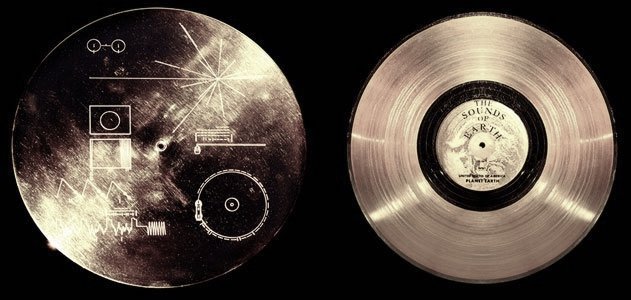Golden record curation

My 10 songs (in no particular order):
- Bach, Brandenburg Concerto No. 2 in F. First Movement, Munich Bach Orchestra, Karl Richter, conductor. 4:40
- Senegal, percussion, recorded by Charles Duvelle. 2:08
- Zaire, Pygmy girls’ initiation song, recorded by Colin Turnbull. 0:56
- Mexico, “El Cascabel,” performed by Lorenzo Barcelata and the Mariachi México. 3:14
- Mozart, The Magic Flute, Queen of the Night aria, no. 14. Edda Moser, soprano. Bavarian State Opera, Munich, Wolfgang Sawallisch, conductor. 2:55
- Georgian S.S.R., chorus, “Tchakrulo,” collected by Radio Moscow. 2:18
- “Melancholy Blues,” performed by Louis Armstrong and his Hot Seven. 3:05
- Beethoven, Fifth Symphony, First Movement, the Philharmonia Orchestra, Otto Klemperer, conductor. 7:20
- Bulgaria, “Izlel je Delyo Hagdutin,” sung by Valya Balkanska. 4:59
- Holborne, Paueans, Galliards, Almains and Other Short Aeirs, “The Fairie Round,” performed by David Munrow and the Early Music Consort of London. 1:17
What were my criteria?
For this task, the first page I visited was the NASA website (California Institute of Technology, n.d.) to read more about the Golden Record. I then decided to pick my songs before listening to the podcast or watching the video, as I did not want to be influenced in my decision-making.
Abby Smith Rumsey poses the question, “What can we afford to lose?” (Brown University, 2017). Granted, the limitations of storage are different to us selecting 10 out of 27 songs on the Golden Record, but I still felt a bit of pressure on deciding which songs I would include. When listening through the record the first time around, I just wanted to enjoy the music and see what was on there. While I listened, I was both intrigued and puzzled by some of the choices. Some thoughts that stood out to me were that: times change, cultures change, and music representation changes. It would be an incredible challenge to select music that would represent different cultures from our planet equally. Not just to cover all geographical areas, but also different time periods. When I think of my home country of Switzerland, even we would find it a challenge to pick one song for our small country alone as we have subcultures and a variety of spoken languages.
Next, I decided that, as a representation of our world through all its history or music and geographical representation, the variety of musical instruments, rhythms and melodies was what I wanted to focus on. I listened to the record a second time through and this time I decided to continue not looking at the titles, but just focusing on what I could hear. I took notes on what stood out to me and crossed off the songs I felt did not stand out as much musically. Just to clarify, I am not a music expert, but I do have a background in classical music, so I very quickly became aware of those biases as I had kept all the songs that I was familiar with or that fell into the classical music genre. I still had about 17 songs in my list, so I ran through the classical music songs and tried to keep the most diverse sounding ones. When it came to the other songs, I tried to go with as much variety as I could, and I slowly cut it down to 10 songs.
As I already find it difficult to make small decisions, I am grateful I was not responsible for choosing the 27 songs in the Golden Record. For me, this emphasised the challenge that Abby Smith Rumsey addressed about deciding what will and what will not be lost (Brown University, 2017). How can we find an unbiased way to whittle down the information being kept. Just because something is more flashy or popular, it does not mean it has more importance.
References
Brown University (2017, July 11). Abby Smith Rumsey: “Digital memory: What can we afford to lose?” [Video]. YouTube. https://www.youtube.com/watch?v=FBrahqg9ZMc
California Institute of Technology. (n.d.) The Golden Record. Jet Propulsion Laboratory, NASA. https://voyager.jpl.nasa.gov/golden-record/